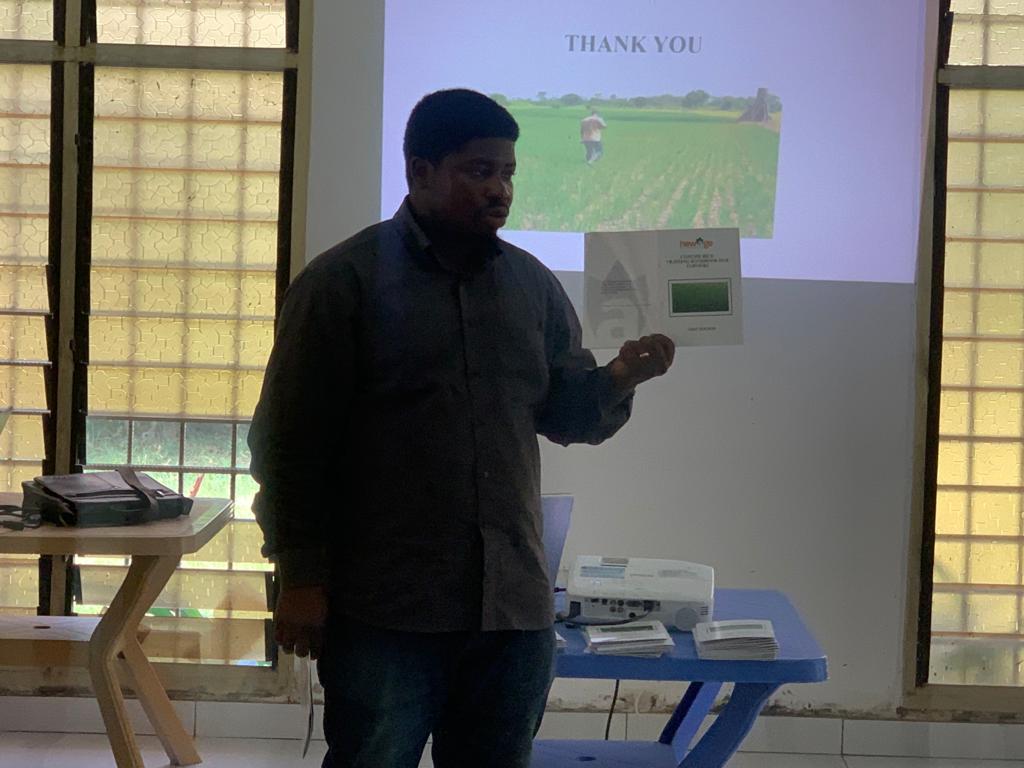
Mr Odame-Gyenti said Ghanaians must be cheerful following the news that the country’s gold production has overtaken South Africa which has always been a superpower in the mining sector.
Speaking at a public forum on monetization of mineral royalties at the auditorium of the Institute of Statistical, Social and Economic Research (ISSER) of the University of Ghana Monday, May 3, he said “Ghana has overtaken South Africa in terms of gold mine. I think it is a good development for us.
“If for all the years we have been trailing behind South Africa but we have been able to take the lead and supporting our gold industry, it is something good which we think we should be proud of. In other countries, comparing to the likes of Sudan, they produce about 76 per cent, Mali 71, Burkina Faso 62, Tanzania 48, DR Congo 52, Zimbabwe 38.7, and Ivory Coast 41.9.
“So Ghana as a gold-producing country, this is the time we have to have these discussions. Discussion which will move the nation forward and this will help us to out our resources to good use.”
For his part, the Chief Executive Officer (CEO) of Songhai Group, Mr Hene Aku Kwapong, has noted that although it is good news that Ghana has overtaken South Africa as the leading producer of gold making it number one, this development has the propensity of rather creating problems for the West African nation.
He explained that the mining companies that are actually doing well in Ghana thereby assisting the country to leapfrog South Africa, are all South African companies.
This means whatever proceeds or value they make in Ghana will be repatriated to their mother country, a situation he said, will be bad for Ghana.
Speaking at a Monetization of Mineral Royalties Forum held at the auditorium of the Institute of Statistical Social and Economic Research (ISSER) of the University of Ghana, Monday, May 3, Mr Kwapong who joined the discussion via zoom from his New York base said “Ghana is now the leading producer of gold, we have passed South Africa and other African countries which is great.
“The problem is that it is actually quite a bigger problem because the only reason why Ghana is largest producer is because two big South African companies are doing more in Ghana. So, if you actually take the value that we get in Gold as a country, it is actually way down. So all we are doing is we are digging out the gold for others to then create value along the whole value chain all the way to the jury and the central bank."
“So we really should try to step away from the obsession and really understand that when it comes to it, we have almost about 1000 metric tonnes of gold in the ground. There are almost eight countries that have more than we do.
“So fifty years from now those eight countries including the US, Australia, Canada and those guys are also the best group that have organized the biggest companies that are working in our own country. So it is almost as if somebody has left their larger resources to come to your country to take your stuff."
“So 50 years from now my biggest concern is if we do not take care we actually may not have the opportunity to even make money from gold, because others would have monetized it and they would have had still a lot of resources left-back in their country.”
Resource Global Network has reported that gold output in Ghana jumped by 12% in 2018 to 4.8 million ounces (Moz), eclipsing South Africa’s output of 4.2Moz for the first time and becoming Africa’s largest gold producer in the process.
South Africa’s gold sector has been in gradual decline for several years, with operators forced to dig deeper into maturing mines at escalating costs, while Ghana is benefitting from low-cost mines, friendlier policies and new development projects.
The shifting location of Africa’s primary gold hub is best encapsulated by the likes of AngloGold Ashanti and Gold Fields – traditionally known as South African industry stalwarts – who have decided to move their focus to other countries, including Ghana.
In addition, Sibanye Gold – the largest remaining gold miner in South Africa – is cutting thousands of jobs and diversifying into platinum group metals (PGMs) in a bid to reduce costs. Read Full Story




















Facebook
Twitter
Pinterest
Instagram
Google+
YouTube
LinkedIn
RSS